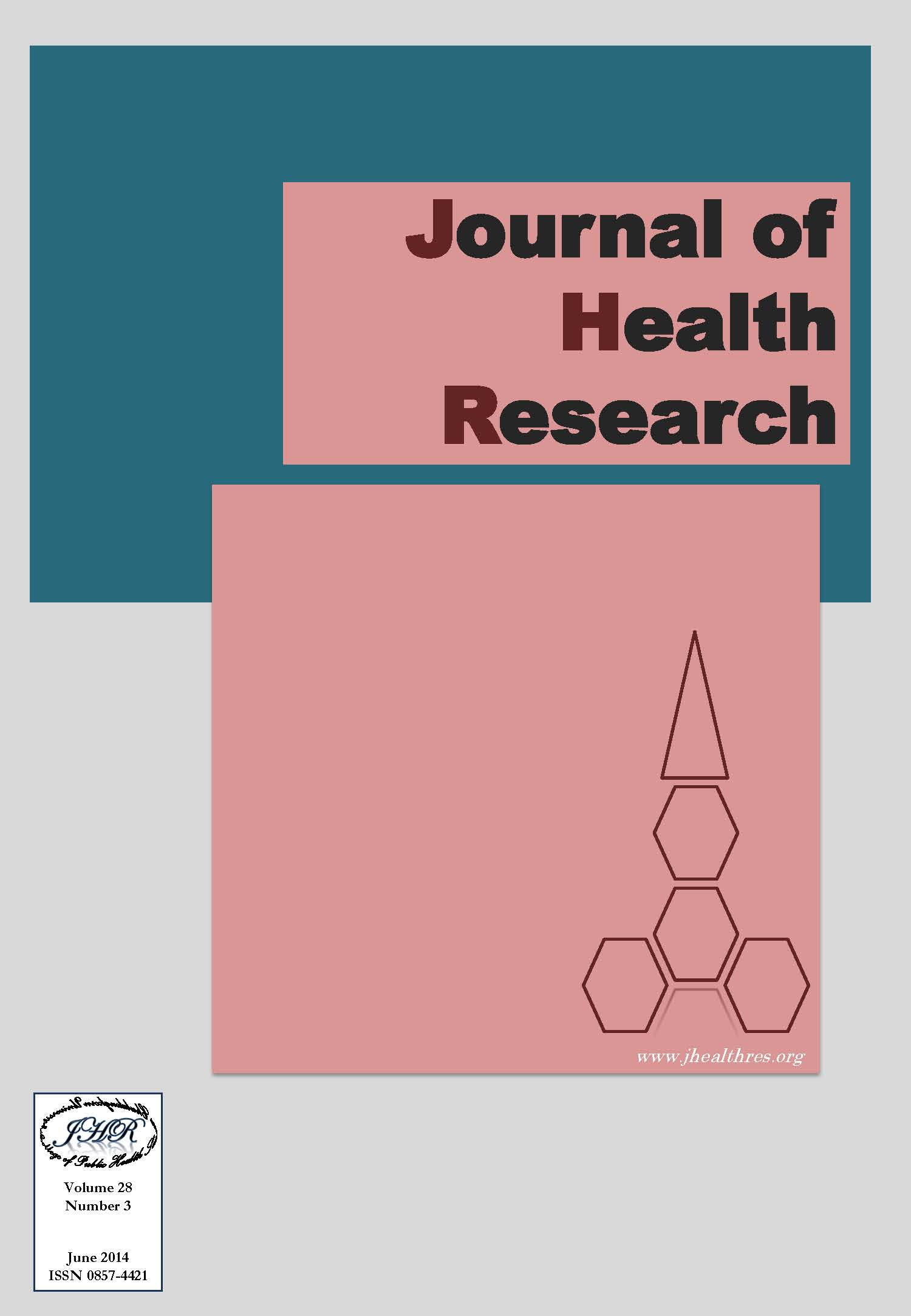Antimalarial Activity of Stem Extract of Tinospora Crispa against Plasmodium Berghei Infection in Mice
Keywords:
Antimalarial, Plasmodium berghei, Tinospora crispaAbstract
Malaria is caused by protozoa parasite Plasmodium and transmitted by female Anopheles mosquito. It causes suffering and death to millions of people each year in tropical and sub-tropical areas including Thailand. However, it has been reported that emergence and drug-resistant parasites were increasing. Hence, novel and effective antimalarial drugs are urgently needed. Medicinal plant extracts have been interested to use for treatment in several disease including malaria. In this study, antimalarial activity of Tinospora crispa extract against P. berghei infection in mice was investigated. Methanol extraction of dried stem powder of T. crispa was prepared and total polyphenolic content was then measured using Folin-Ciocalteu method. For in vivo test, ICR mice were inoculated with P. berghei ANKA and treated intraperitoneally with crude extract at doses of 20, 100, and 200 mg/kg. It was found that crude extract of T. crispa has antimalarial activity in dose-dependent manner, especially at doses of 100 and 200 mg/kg with percent inhibition of 35% and 50%, respectively. However, the extract at dose of 20 mg/kg had no any antimalarial effect. Interestingly, percent inhibition was increased in combination treatment of pyrimethamine with the extract in dose-dependent manner. Complete inhibition and parasitemia was clear by combination treatment with 200 mg/kg of extract and pyrimethamine. In conclusion, T. crispa extract has an antimalarial activity in dose-dependent manner and strong inhibitory effect when using as combination treatment with pyrimethamine.
Keywords:






